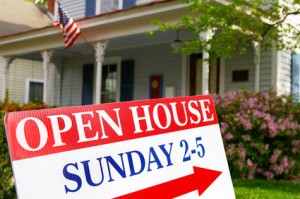In recent years, the average time to sell a home has dramatically increased. This is largely due to the unemployment rate and credit crunch, which are limiting the number of first time home buyers entering the market, as well as the increasing number of short and foreclosure sales. According to the Accredited Seller Agent Council, the average time to sell a home in the U.S. is 10 months. However, there are many factors that can impact how quickly your home will sell.
Factors Affecting the Average Time to Sell a Home
Home listing price – An asking price that is either too low or too high can dramatically reduce the chances of selling your home on a timely schedule. Your agent should be familiar with the local market and provide you with local comps (comparable homes that have recently sold) to help determine what your asking price should be. Whether you take or ignore this advice is a contributing factor to the length of time the house will remain on the market.
Condition of home – The condition of your home during viewings or appraisals is also a contributing factor. When anticipating a showing or other appointment, your home should be spotlessly clean and tidy with no visible flaws. Nail holes, carpet stains and other defects must be patched, cleaned or corrected. Many agents also suggest you “depersonalize” your home by removing personal items such as photos, memorabilia, etc. If you own pets, they should be contained in a separate area of the house with no evidence they live on the premises. Home buyers need to be able to envision themselves living in the home – the less clutter or distraction, the more likely it will sell.
Location of home – Location is always a top factor in the desirability of a home, especially in a soft or surplus market. A home that is adjacent to a busy road, a messy neighbor, or a busy shopping center will be more difficult to sell than a home with open range, unobstructed views, or better school districts. If your home is not in a desirable location, it may take a price reduction as well as additional time to sell.
Region – Home markets vary from city to city based on the employment rate and inventory of available properties. For that reason, the average time to sell a home can vary by months depending on what city or market it resides in. According to ClearCapital, the average time to sell a home for soft markets such as Miami, Las Vegas or Detroit could be 10 to 12 months, whereas in a healthier market such as Washington D.C. or Houston, it can take as little as one to two months.
Home Seller Flexibility – A flexible seller who is willing to accept spur-of-the-moment or random viewings may be more likely to receive an offer than those who limit the schedule or frequency of potential buyers to view the property. Likewise, a seller who is flexible on the price of the property will be more likely to accept a reasonable offer. The seller needs to be realistic and understanding that, in order to sell a home, compromises are needed.
Type of Home Sale – The type of home sale is also a contributing factor in how quickly a house will sell. If the property is a short-sale or foreclosure, the process can take six months to a year (or more). However, if it’s a traditional home sale with a quick close, it can take as few as two to four weeks. Unfortunately, in these scenarios, the seller has little control over how long the process will take, as the majority of acceptance and paperwork lies with the lender and title companies.
Clearly there are a variety of factors that affect the average time to sell a home. Being aware of these factors, making the necessary adjustments, and having flexibility and patience will help smooth the process and bring your home to a close within a desirable time frame. If you want to get a better estimate of how long it will take to sell your particular home, consult a local real estate agent. They are happy to take these requests even if you aren’t sure you are ready to sell your home.


If people with nice homes cannot sell them quickly or owe more than their home is worth then what would happen if they lose their job? Would they face foreclosure? What does a foreclosed home do to the prices of the surrounding homes?
I assume the majority of highly skilled workers have families and nice homes. If it takes so long to sell a home and move to a new city then does that explain why we have 3.3 million open jobs and high unemployment?
If more people are working do banks have more credit available to lend out?
http://en.wikipedia.org/wiki/Reserve_requirement
Sorry, I do not own a home I am just sick of all the negativity. It seems like underselling your home will lower the prices of the neighboring homes and might erode any equity you have built up.
Is there anything you can do to help someone move to their new job faster without destroying the economy?